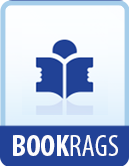The skin of a roe about them in the middle, it was as white as snow; black-grey eyes in their centre. Cloaks of linen as white as the tunic of a swan around these ties.[FN#4] Harps of gold and silver and bronze, with figures of serpents and birds, and hounds of gold and silver: as they moved those strings those figures used to run about the men all round.
[FN#4] This is the Egerton version, which is clearly right here. The Book of Leinster gives: “These figures accordingly used to run,” &c., leaving out all the first part of the sentence, which is required to make the meaning plain.
They play for them then so that twelve of the people[FN#5] of Ailill and Medb die with weeping and sadness.
[FN#5] The Book of Leinster omits “of Ailill and Medb.”
Gentle and melodious were the triad, and they were the Chants of Uaithne[FN#6] (Child-birth). The illustrious triad are three brothers, namely Gol-traiges (Sorrow-strain), and Gen-traiges (Joy-strain), and Suan-traiges (Sleep-strain). Boand from the fairies is the mother of the triad:
[FN#6] Pronounced something like Yew-ny.
At every one of the harpers’ waists was girded the hide of a roe, And black-grey spots in its midst were placed, but the hide was as white as snow; And round each of the three of them waved a cloak, as white as the wild swan’s wings: Gold, silver, and bronze were the harps they woke; and still, as they touched the strings, The serpents, the birds, and the hounds on the harps took life at the harps’ sweet sound, And those figures of gold round the harpmen rose, and floated in music round.
Then they played, sweet and sad was the playing,
Twelve of Ailill’s men died, as they heard;
It was Boand[FN#7] who foretold them that slaying,
And right well was accomplished her word.
[FN#7] Pronounced with sound of “owned.”
’Tis the three Chants of Child-Birth
Give names to those Three;
Of the Harp of the Dagda[FN#8]
The children they be.
[FN#8] The Dagda seems to have been the chief god of the old Celtic mythology.
To those harpers a fairy
Is mother, of yore
To that Harp, men call Child-Birth,
Queen Boand the three bore.
They are three noble brothers,
And well are they known;
They are kindly and gentle,
And tuneful of tone.
One is Joy-Song, one Sorrow’s,
One, “Song that gives Sleep,”
And the Harp’s strains, their father’s,
Remembered they keep.
For when Boand was at bearing,
Came Sorrow the first,
From the Harp, its strings tearing
With cry, Sorrow burst.
Then there came to her pleasure
For birth of a boy;
And a sweet smiling measure
The Harp played, ’twas Joy.
And she swooned in her anguish,
For hard the third birth:
From the Harp, her pains soothing,
Sleep’s strain came on earth.
Then from Boand passed her slumber,
And, “Uaithne,"[FN#9] she cried,
Thy three sons, thou sharp Child-Birth,
I take to my side.




